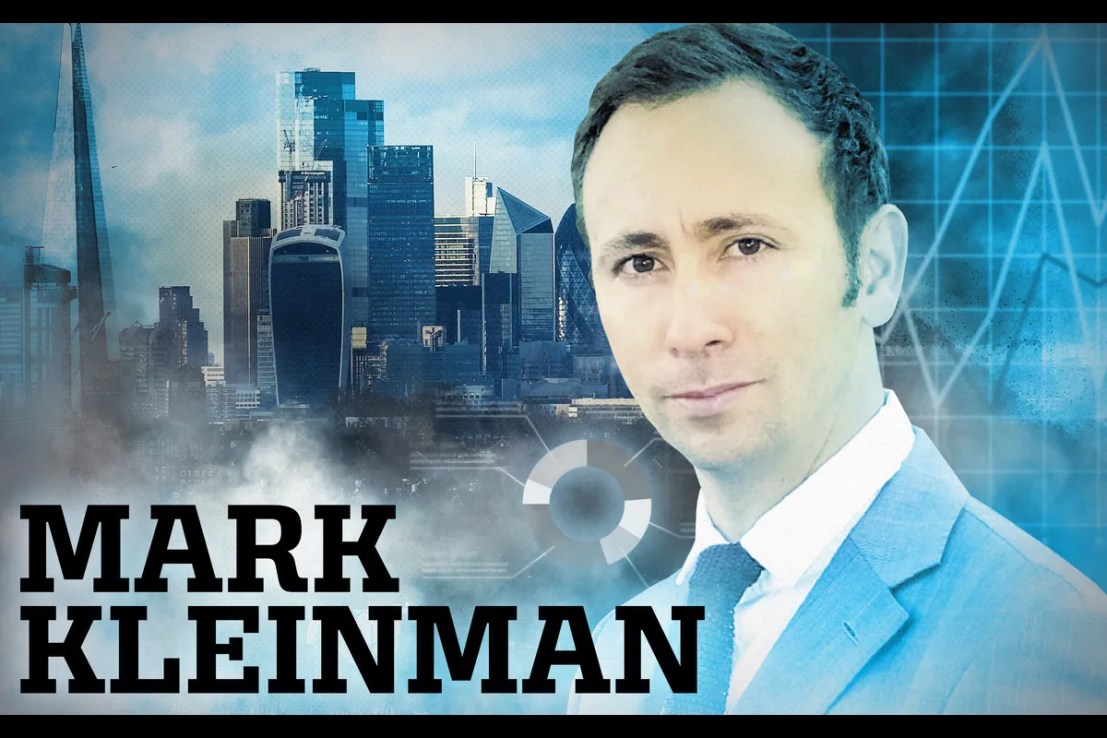Mark Kleinman: Natwest’s long night’s journey into day is nearly over
Mark Kleinman is Sky News’ City Editor and is the man who gets the Square Mile talking in his weekly City AM column. This week he tackles the end in sight for Natwest, Post Office drama and a nice Swiss role Natwest’s long night’s journey into day is nearly over At last, the end is sight. Sixteen long [...]


Mark Kleinman is Sky News’ City Editor and is the man who gets the Square Mile talking in his weekly City AM column. This week he tackles the end in sight for Natwest, Post Office drama and a nice Swiss role
Natwest’s long night’s journey into day is nearly over
At last, the end is sight. Sixteen long years after Treasury mandarins and Gordon Brown’s government engineered what Fred Goodwin labelled “a drive-by shooting”, the corpse that was Royal Bank of Scotland is alive and ready to stand on its own two feet.
Rachel Reeves’ first Budget next week will have plenty of far-reaching tax rises which dominate the ensuing headlines; yet any reference to the disposal timetable for the government’s remaining stake in Natwest Group will be palpable in its symbolism.
The Treasury’s shareholding, managed by UK Government Investments (UKGI), stands at about 15 per cent, with a percentage point reduction occurring on average roughly every fortnight through an ongoing trading plan run by Morgan Stanley.
At the current rate of disposal, that would lead to the taxpayer exiting its interest by the late spring or early summer.
Reeves, though, may have other ideas. The government’s remaining stake in Natwest is worth approximately £4.5bn, and earmarking the proceeds to offset one or more of the contentious measures in her statement might well appeal given the heat she is likely to receive.
The Chancellor has several options to accelerate the Natwest selldown. She has already ruled out following through with the Conservatives’ pre-election plan to deliver a retail offer, which would have involved offloading about £3bn-worth of shares.
Officials say, however, that she is likely to opt for an institutional offering of shares in the coming months, dependent upon market conditions. Or she may pursue a further directed buyback, which involves NatWest deploying surplus capital to acquire shares held by UKGI.
Either one of those options would enable Reeves to sell a more significant chunk of stock in one go, potentially bringing forward the timing of the government’s exit from Natwest by several months.
Market sources now believe that in as little as six months’ time, taxpayers’ long journey as a shareholder in the UK banking sector will be at an end.
Nationalised by Darling, privatised by Reeves; then the onus will be on Natwest’s new management team to demonstrate what the company, once again fully owned by private sector investors, is capable of achieving.
It’s Sir Alan vs the consultants in Post Office drama
It’s Mr Bates vs the Post Office, part two. Not much more than 12 hours after I revealed on Sky News last weekend that the government had asked BCG, the management consultants, to evaluate options for mutualising the Post Office than its heroic bete noire was publicly ridiculing the idea.
“The government subsidises it and will continue to have to support it,” Sir Alan told The Sunday Times. “They can’t just give it to the sub-postmasters and say ‘here you go, mate’. I don’t think mutualisation is going to save the government or taxpayer huge amounts of money.”
His was not the only voice of opposition. Lord Arbuthnot, who campaigned for justice for the victims of the Horizon IT scandal from its earliest days, referred to the state-owned company’s many financial challenges when he said: “I don’t know how an already-battered group of sub-postmasters would be able to fund that.”
The answer is, of course, that they wouldn’t. A financial model would have to be devised to retain a government guarantee or backstop to finance the investment needed to replace Horizon, and see the Post Office through to financial sustainability (which would be a long-term journey rather than an overnight fix).
It would need cross-party support, and a commitment to reducing the state’s ownership over time.
For all his faults, Nick Read, the company’s outgoing boss, was onto something when he pitched the idea of a profit-sharing mechanism to thousands of sub-postmasters.
The scarring caused by the events of the last 20 years will never heal, for many of those directly affected. A Post Office owned by those who run its network might be the only way to restore trust in a vital community institution.
Swiss role suits KPMG’s Geiger counter
Anyone for a Swiss role? The merger of KPMG’s UK and Swiss firms to form a combined entity with more than $4bn of revenue is only the latest example of intra-consolidation between different member firms of global accountancy groups.
It’s a trend that looks likely to continue, with Grant Thornton’s US partnership, backed by funding from private equity investor New Mountain Capital, on a shortlist of three remaining bidders for a large stake in the firm’s UK business.
I understand that at KPMG, partners have been informed that Melissa Geiger is to chair the combined board of the newly united UK and Swiss firms, with a mandate to ensure effective governance.
Jon Holt, group chief executive and UK senior partner at KPMG said in a statement that the role was “critical…[for] the stewardship of the firm and holding myself and my executive team to account to deliver our strategy”.
History offers a salutary lesson, though: in 2007, KPMG’s businesses in the UK, Germany, Liechtenstein and Switzerland merged, only for the move to be unwound years later after it was deemed to have failed.
Governance in the big four audit firms has historically, critics would suggest, been too cosy, with little in the way of independent scrutiny to identify areas of weakness. A Geiger counter to detect the radioactivity of weak oversight might help the much-fined KPMG avoid repeating the mistakes
of yesteryear.



